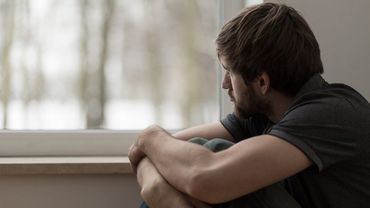
I was greeted by a roar of conversation as I entered the restaurant. Countless happy families, couples, and groups of friends smiled and laughed as they enjoyed their meals.
There was nothing unusual about this—it’s a typical scene at a restaurant, after all—except for the fact that I was eating alone for one of the first times in my life. And it was an acutely painful feeling. I was in a new city surrounded by complete strangers. They didn’t know me, and I didn’t know them. We didn’t matter to each other, and it was a depressing thought. As I sat waiting for my food, I felt exposed and terribly uncomfortable.
To relieve my discomfort, I quickly pulled out my smartphone (a new invention at the time) and began shuffling through text messages and social media apps. It was a shield of sorts, to deflect the pain of being alone. And it worked. Scrolling through endless social media content, I was briefly soothed and distracted from my isolation—at least enough to get me through the meal.
The Epidemic of Loneliness
While it may sound exaggerated to say that eating alone can be painful, anyone who has done it knows that it’s true. Tragically, an increasing number of Americans are living the painful reality of loneliness on a daily basis—and not just at meals, but constantly. Loneliness and isolation are becoming the norm for millions of people.
Research shows rates of loneliness among adults have doubled from 20% to 40% since the 1980s. And according to the General Social Survey, an annual study of societal conditions in the United States, the average American has not a single close friend to confide in or rely on in a crisis. Not one.
In the U.K., 9 million people report being frequently or always lonely. The crisis is so severe that the British government recently appointed a Minister for Loneliness to help resolve the issue. “For far too many people, loneliness is the sad reality of modern life,” British prime minister Teresa May said during the announcement. “I want to confront this challenge for our society and for all of us to take action to address the loneliness endured by the elderly, by carers, by those who have lost loved ones—people who have no one to talk to or share their thoughts and experiences with.”
Social isolation is not only a painful feeling; but it can also have devastating physical effects. Studies have shown that loneliness is linked to an increased risk of a whole range of health conditions, from cancer to diabetes, and it can be significantly more harmful to health than heavy smoking or chronic obesity. Loneliness is also linked to increased risk of suicide, and it can make you twice as likely to die prematurely.
Loneliness and Pornography Use
What does the epidemic of loneliness have to do with pornography use? Studies show that loneliness can be one of the primary drivers of addictive behavior. In his book, Chasing the Scream, addiction researcher and investigative journalist Johann Hari argues that social isolation can be one of the primary causes and ongoing fuels of addiction. The more disconnected you are from meaningful relationships, the more vulnerable you are to addictive behavior of all kinds.
That addictive behavior includes pornography use. A recent study published in the Journal of Sex and Marital Therapy found a strong positive association between loneliness and pornography use. Put simply, if you’re chronically lonely, you’re far more likely to use porn on a regular basis.
How did we get here?
The breakdown of social connections has created an epidemic of loneliness, and a whole range of social ills have developed as a result. As research has been showing for decades, the physical and emotional consequences of loneliness are very real. Tragically, millions of men and women live with these consequences on a daily basis.
But why are we so lonely? And perhaps more importantly, why is loneliness so devastating to the human person and what does it have to do with pornography? After all, our culture praises the primacy of the individual. Independence, self-reliance, and autonomy are all virtues we are told to value from a young age. If such beliefs are true, we should be able to function fine in isolation from others.
But we don't. Loneliness often leads to increased porn use. The keys to breaking free from porn is to be transparent about your use, seeking support, and becoming more spiritually attuned to God's love for you.
This post was written by Sam Gutzman of Covenant Eyes. You can find his original post and sign up for his series on loneliness and porn here: www.covenanteyes.com/2018/03/27/porn-and-the-epidemic-of-loneliness-part-1/
 RSS Feed
RSS Feed